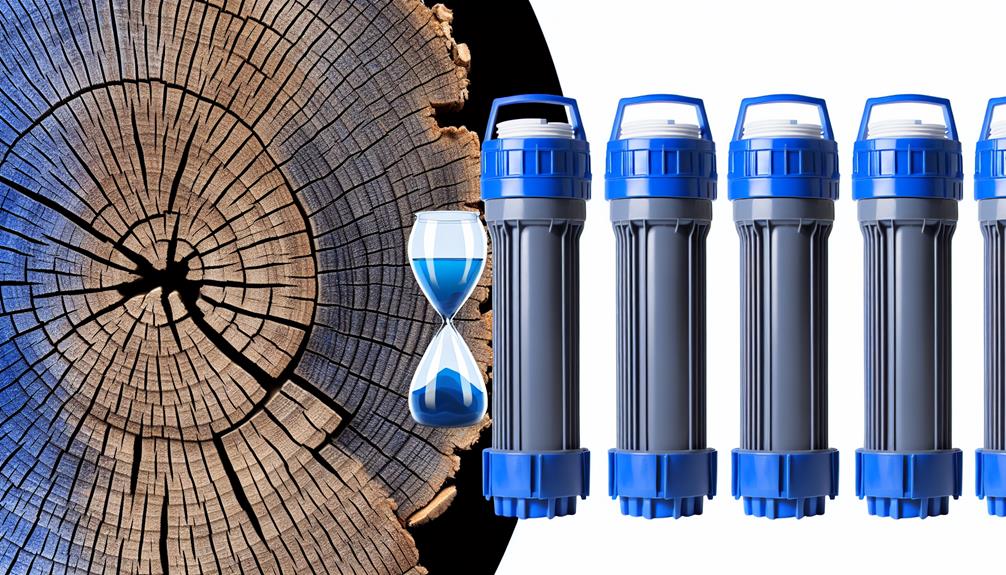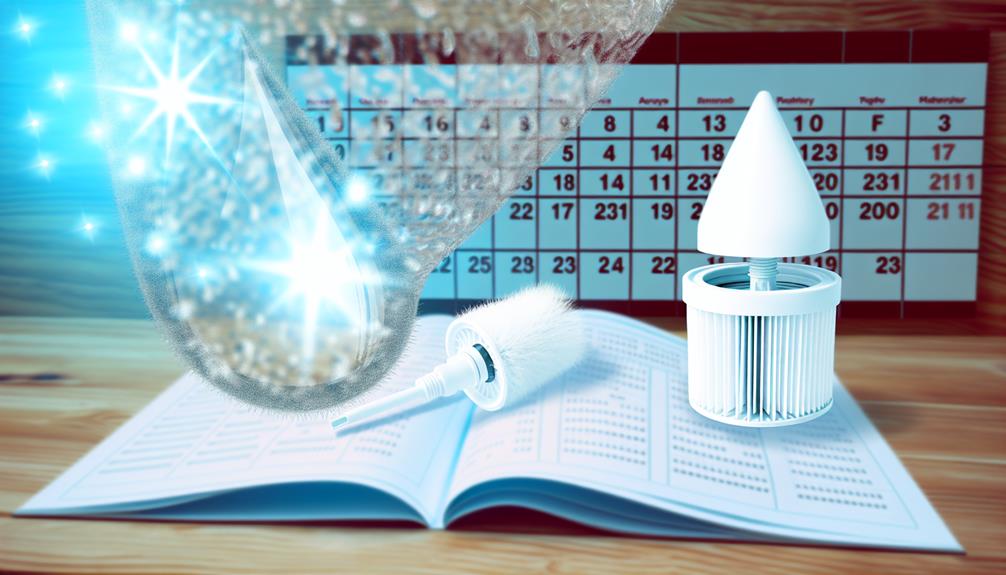Imagine you've just installed a sleek new water filter in your home, confident in promises of purity and a lifespan of several years. You're not alone in your quest for cleaner water, but have you considered how long your filter will actually last before its performance dips, or if it varies by brand?
Water filters come with varied lifespans, often influenced by factors such as usage, water quality, and the maintenance you're willing to put in. While some brands boast longer-lasting filters, others may require more frequent changes, potentially impacting not just water quality but also your wallet over time.
As you pour yourself a glass of water, you might start to wonder: is your filter living up to its promised lifespan, and what could you do to maximize its efficiency? Stay tuned to uncover the intricate dance between brand promises, real-world usage, and how to ensure the longevity of your water filtration system.
Understanding Water Filter Lifespans
To optimize your water filter's performance and ensure water safety, it's crucial to grasp the factors that dictate its lifespan, including filter type, water quality, and maintenance routines.
The average lifespan of a water filter varies significantly, as different filter types employ distinct filtration mechanisms with varying degrees of effectiveness.
Regular maintenance is a key component in ensuring clean, safe drinking water and can also affect the lifespan of your filter. For instance, carbon filters, which are common in many households, typically need to be replaced every 2 to 6 months. However, more advanced systems like reverse osmosis filters have a longer average lifespan, requiring replacement every 1 to 3 years.
Factors That Affect the lifespan of a water filter go beyond the filter itself. The quality of your water plays a pivotal role; high levels of contaminants can shorten a filter's life. Similarly, how often you use your filter can also determine how soon it will need to be replaced.
Key Factors Affecting Lifespan
Understanding the key factors that influence the lifespan of your water filter helps you maintain its efficiency and ensure a consistent supply of clean water. The quality of the water passing through your system plays a pivotal role; higher contaminant levels can clog filters more rapidly, shortening their effective lifespan. Regular encounters with sediment-laden or hard water can demand more frequent replacements, as these conditions strain filter media.
Moreover, the volume of water your household consumes directly impacts filter longevity. A high-demand setting intensifies the wear on your system, leading to a decreased lifespan. It's crucial to consider the flow rate and water pressure as well; both can affect how quickly filter media become saturated and lose their ability to purify effectively.
Types of filters, ranging from carbon to reverse osmosis, ceramic, and UV, have inherent lifespans that vary widely. Regular maintenance, including cleaning and rinsing, can prolong the life of your filter. However, neglect can cause a decline in performance. Look out for signs such as changes in indicator lights, a metallic taste, unpleasant odors, reduced water pressure, or the presence of black mold, which signal it's time for a replacement.
Brand-Specific Lifespan Comparisons
While considering the factors that influence filter longevity is crucial, it's also important to compare the expected lifespans of different brands to make an informed decision for your specific needs. Brand-specific lifespan comparisons offer a methodical approach to determining when it's time to replace your water filters.
Carbon filters, utilized by several brands, generally have a lifespan ranging from 2 to 6 months before filter replacement is necessary. This variance is influenced by both the brand's technology and the water quality in your area.
Reverse osmosis (RO) filters, known for their long-term service, typically require a replacement every 1 to 3 years. However, this is dependent on the brand's design and the daily volume of filtered water.
For ceramic filters, the need for replacement varies, as some brands design their filters to be cleaned and reused multiple times. Conversely, UV filters, irrespective of brand, mandate an annual lamp replacement to maintain efficacy.
When assessing the lifespan of your water filter, it's essential to consider these brand-specific lifespan comparisons. This will ensure that your filter needs are met and that you're alerted precisely when it's time to replace your filter, thus safeguarding the quality of your water supply.
Maintenance Tips for Longevity
Adhering to the manufacturer's specified filter replacement intervals is critical for maintaining optimal performance and ensuring the longevity of your water filter system. Regular cleaning and rinsing of your filter are essential maintenance tips for longevity that can prevent clogging and prolong its lifespan. Remember, clogged filters can compromise both water purification quality and the efficiency of your entire system.
Monitoring water quality and how often you use your water filtration system is key. High-demand environments might necessitate more frequent replacing of your water filter than manufacturer guidelines suggest. Don't ignore signs of wear or malfunction, such as decreased water pressure or an unexpected metallic taste, as these are clear indicators that it's time to replace your water filter.
If you possess reverse osmosis filters or water softeners, understanding their specific maintenance needs is crucial. These systems often require more intricate care, and neglecting this can lead to system failure.
To ensure the longevity of your filter performance, consider engaging in an Annual Maintenance Contract (AMC). This will guarantee regular, professional servicing of your water filtration system, which can significantly extend its functional life. Stay vigilant and proactive about your system's maintenance, and you'll benefit from pure, clean water for years to come.
Signs Your Filter Needs Replacement
Recognizing when your water filter requires replacement is crucial for maintaining water quality and system efficiency. You need to be vigilant about the signs that your water filter is nearing the end of its efficacy. Here are key indicators that it's time to replace your water filter:
- A change in taste or odor, such as a metallic flavor or a rotten egg smell, can be a sign that your water filter is failing to remove contaminants effectively.
- A noticeable drop in water pressure might indicate that your filter is clogged, which can happen from normal wear and tear.
- The presence of visible particles or cloudiness in your water could suggest that the filter is no longer effectively removing impurities.
Analyzing these signs is critical. Filters last a finite period before they need replacement, and failure to do so may result in contaminated water.
Each type of filter will have a different lifespan, often specified by an expiration date. However, actual filter replacement may be more frequent depending on use and water quality.
Always consider the manufacturer's guidelines and the unique circumstances of your water usage to determine when to replace your water filter.

